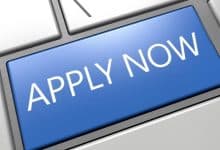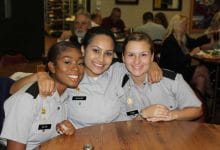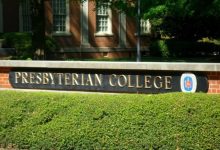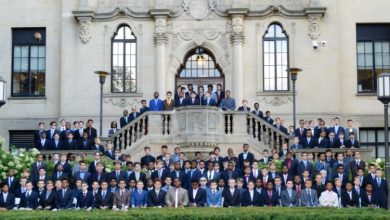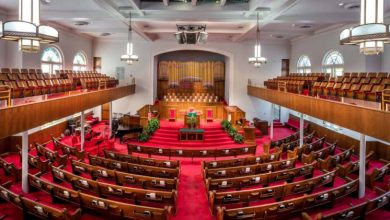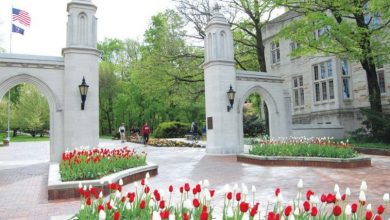F1 Visa Interview Questions And How To Answer 2024
Proven Tips On How To Ace US Student Visa Interview
If you prepare well, dress to impress, and have all of your answers ready for the typical F1 visa interview questions, your US visa interview will go easily. To get started, read this post.
The article also includes a list of tips to remember when giving your F1 visa interview.
U.S F1 Visa Interview
The F1 visa interview is only 3–5 minutes long. However, it is one of the most important aspects of your study abroad application. This article will inform you what to expect and how to prepare for the interview. You’ll learn how to plan your preparation, what documents to bring, and what F1 visa interview questions to expect and how to respond to them.
How to Prepare for Your Visa Interview
As we indicated in our post about ‘How to Get a Student Visa for the United States,’ you should start the visa application process 6 months before your course begins.
As a result, you’ll have three months to prepare for your F1 visa interview. And we recommend that you get started right immediately!
1. Gather all of your documentation
After you’ve applied for an F1 visa, the first thing you should do is check over the list of essential documents and gather them all in one location for your convenience.
When you go to the interview, bring these papers with you. Although visa officers rarely request them, it is a good idea to have them on standby.
2 Organize your finances
The ability to support your own education is one of the most important elements considered by the US Consulate General.
The visa process will be significantly easier if you can demonstrate that you and your immediate family have the finances to both fund your study and live well while you are overseas.
3. Examine what you’ve gathered.
Make sure you thoroughly review your academic reports, application, and financial documentation so you can respond to any queries that may arise. It’s the equivalent of reading your CV before going to a job interview.
4. Be aware of your future plans.
Many students do not do enough research about their course, the university they will attend, or the city they will be living in. Make sure you’re not one of them.
Prepare yourself by learning everything you can about these topics and being ready to answer questions about them.
Recommended: Japan Student Visa – How To Apply
Documents for F1 Visa Interview
For your F1 visa interview, you’ll need to gather and carry a list of documents. These include all relevant documents of your identification, academics, career, and finances.
As previously stated, the visa officer will (most likely) not ask you to share them with him, but it’s still a good idea to have them with you.
You’ll need the following documents for your F1 visa interview:
- Visa appointment letter
- International Passport
- Passport-sized photograph
- SEVIS fee receipt
- DS160 form
- Academic transcripts
- Degree certificate
- Test scores (GRE/GMAT and IELTS/TOEFL)
- Joining letter (if you’re a working professional)
- Salary slips for the last 6 months (if you’re a working professional)
- Relieving letter (if you’re a working professional)
- Bank statements, Fixed Deposit certificates, loan approval letters, verification of any liquid funds you may have, and tax returns from the last three years are all examples of required financial documentation.
Note: While this is a broad list of documents you’ll need, it’s always a good idea to read over your visa application online and double-check that you have everything you need.
F1 Visa Interview Questions
Arrive 30 minutes early for your interview at the embassy. The four components of your F1 visa interview will include study plans, university choice, finances, and post-graduation plans.
Let’s go over each components one at a time and see how to respond correctly to F1 Visa Interview.
Which schools did you apply to?
Ans: Tell how many colleges you applied to and why you chose them. During the university shortlisting process, here is when your research skills may shine.
Which ones did you get accepted/rejected?
Ans: This inquiry requires an honest response. Acknowledge that some (if any) of your applications were denied, but also highlight those that were accepted.
What made you choose this university?
Ans: Explain why you choose a particular institution, whether it’s because of the program, faculty, location, or reputation.
Where did you get your high school diploma/degree? bachelor’s?
Ans: This is a simple question to answer; tell them where you obtained your most recent qualification.
What motivates you to change your major?
Ans: Explain why you’re changing fields in detail, making sure to emphasize that you now have sufficient knowledge and experience in the new subject.
Who is paying for your education?
Ans: This is a simple question to answer; tell them how you intend to sponsor your study.
What does your mother/father do?
Ans: Let the visa officer know what your parents do to help them understand that your family is financially capable of funding your study overseas.
What is the income of your mother/father/you?
Ans: Be honest about the incomes of your family members/sponsor for the same reasons indicated above.
Do you have siblings?
Ans: The visa officer is once again attempting to determine whether your parents are financially capable of supporting another kid.
Do you have any American relatives?
Ans: Kindly notify the interviewer of any immediate family members who live in the United States. Because they already know the answer, it’s best to be upfront about it.
Why not complete the course in your own country? Why United States?
Ans: You might emphasize that US colleges provide high-quality education and award degrees that are recognized globally. The immigration officer will use this question to determine if you are choosing the US because of its job market and have any plans to return.
What are your plans after you finish your degree?
Ans: Notify the interviewer if you want to work in the U.S after graduation. Mention if you wish to start anything on your own. Also, if you desire to return to your home country, make sure you mention it.
Are you certain you won’t stay in the United States?
Ans: This question, like the previous one, assesses your desire to stay back in the United States after graduation. The majority of students intend to return to their home country after graduation and work with their family. You can also be forthright about returning to your own country and working for its good.
Do you have any loans, scholarships or grants?
Ans: Let the immigration officer know about any scholarships or grants you have, to show that you are financially capable of funding your studies overseas.
Tell me about your present job and position.
Ans: Only working professionals who plan to study in the United States after working for a while are asked this question. Again, the idea is to be truthful.
You may begin your preparation now that you have a good understanding of the list of F1 visa interview questions and answers!
Top Scholarships For International Students In USA
International students seeking to study in USA can benefit from generous scholarships. To improve your prospects of studying at a top-tiered university in the United States, look into these fully-funded scholarships.
University of Harvard Scholarships
Concord University Scholarships
University of Memphis Scholarships
Rochester Institute of Technology Scholarships
Finlandia University Scholarship
Other Resources To Aid Your F1 Visa Interview Preparation
It’s not enough to know all of the F1 visa interview questions and answers.
During the interview, you must also consider your confidence, enthusiasm, body language, and a variety of other characteristics. You must also practice in order to boost your odds.
Interview preparation tips
You will only have 30 seconds to make a good first impression in your interview, just like any other. And there are a few things you must remember in order to ace your F1 Visa interview.
Dress to impress
Dress formally, with a light shirt and black slacks or a skirt, but don’t go overboard. Remember to accessorize your formal wear with a watch, as well as earrings, rings, and light make-up.
Be aware of your body language
Maintain strong eye contact, a grin on your face, and a firm handshake from the minute you walk into the US Consulate General. Also, when sitting or standing, don’t cross your arms or legs or slouch.
Express your gratitude
When the interview is over, shake your interviewer’s hand and express your gratitude for taking the time to speak with you.
Note their names
Make a point of remembering your interviewer’s name and mentioning it a few times during your talk. This nice gesture can make a huge difference in your interview outcomes!
Bring a briefcase with you.
Keep all of your paperwork, as well as a pen and paper, in your briefcase at all times.
Bonus Tips For Visa Interviews
Mirror the body language of your interviewer. It demonstrates that you’re paying attention and lowers their guard, allowing them to relax.
These points should be sufficient to get you started on your F1 visa interview preparation.
However, if you require further information or ideas on how to ace the interview, or if you have any questions about the interview process, please leave a comment or contact us.
We’d be delighted to assist!
In order not to miss out on prompt updates from careerinfos.com, enter your email address below and hit the subscribe button beneath.
A confirmation link will be sent to your inbox or check your spam mails if its not in your inbox. Make sure you click the link to confirm your subscription in order not to miss any updates from this blog. All comments (related to the post above) should be dropped via the comment section below.

